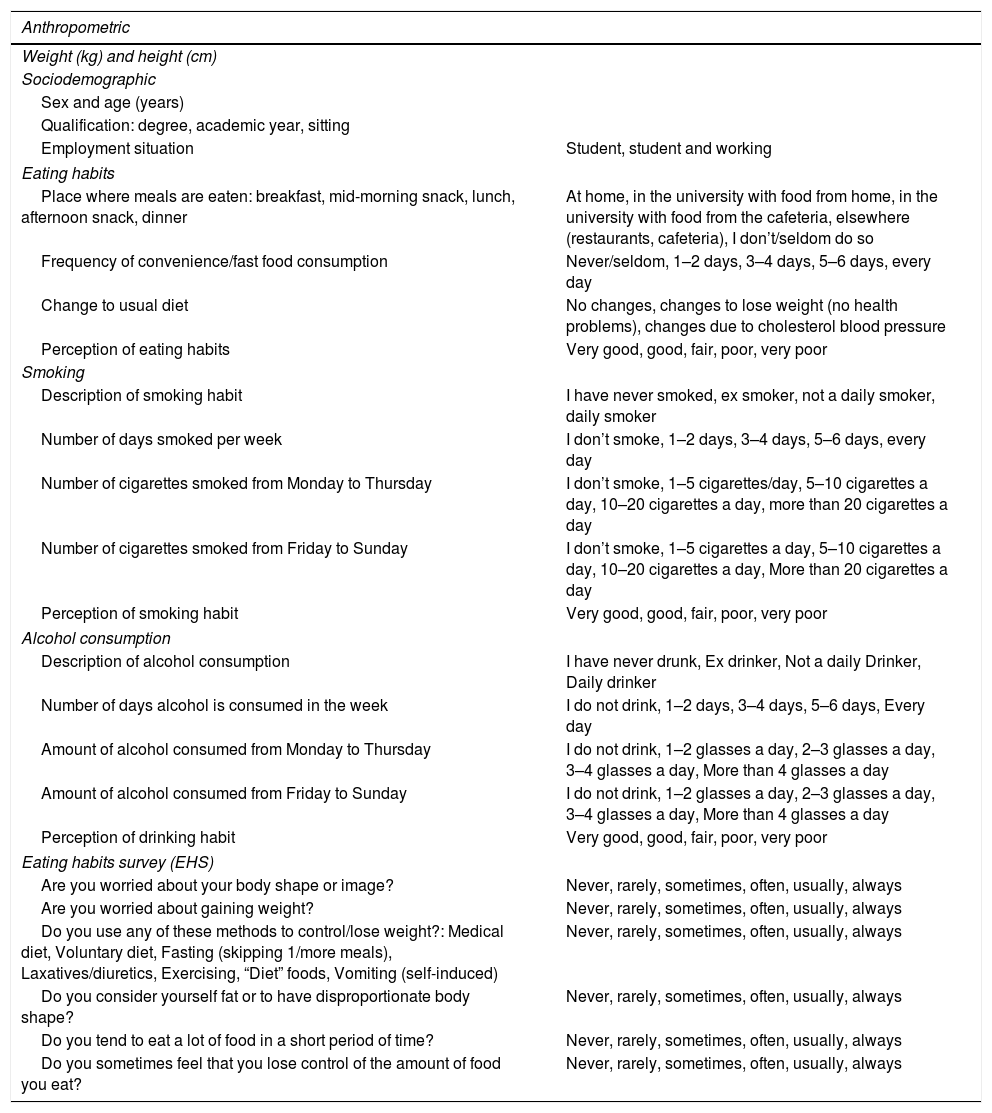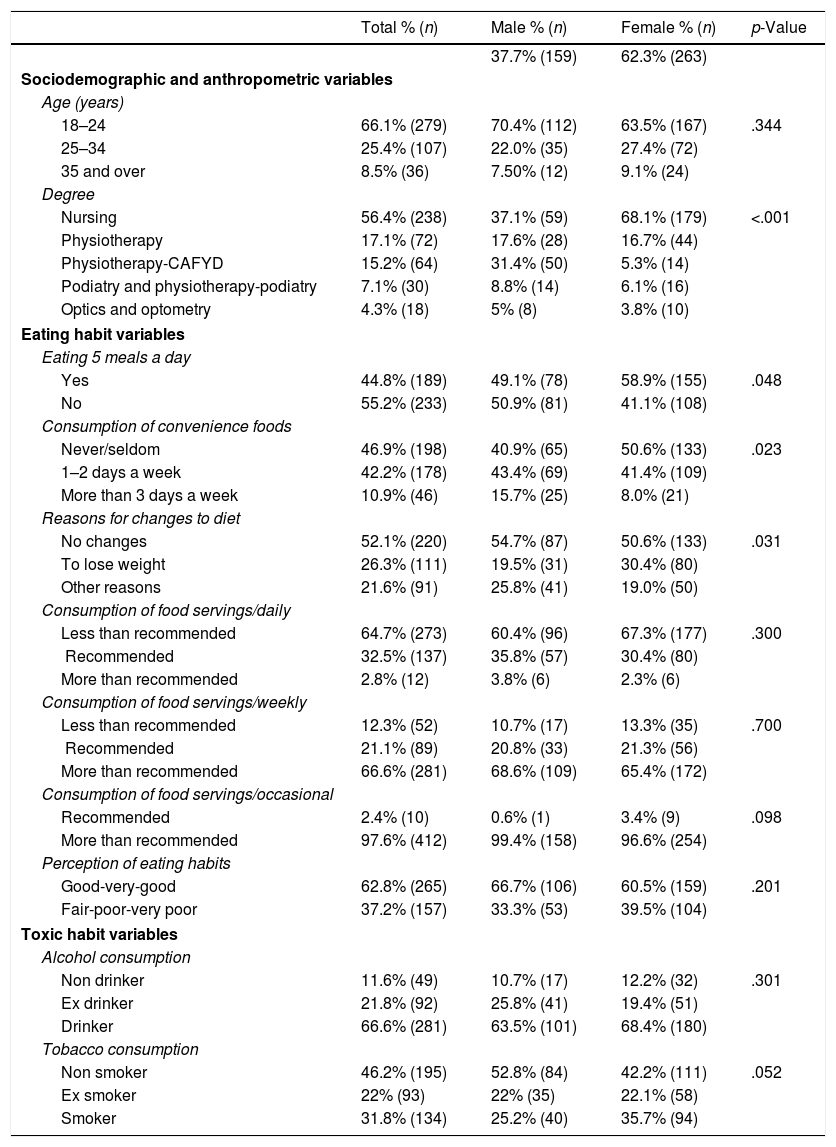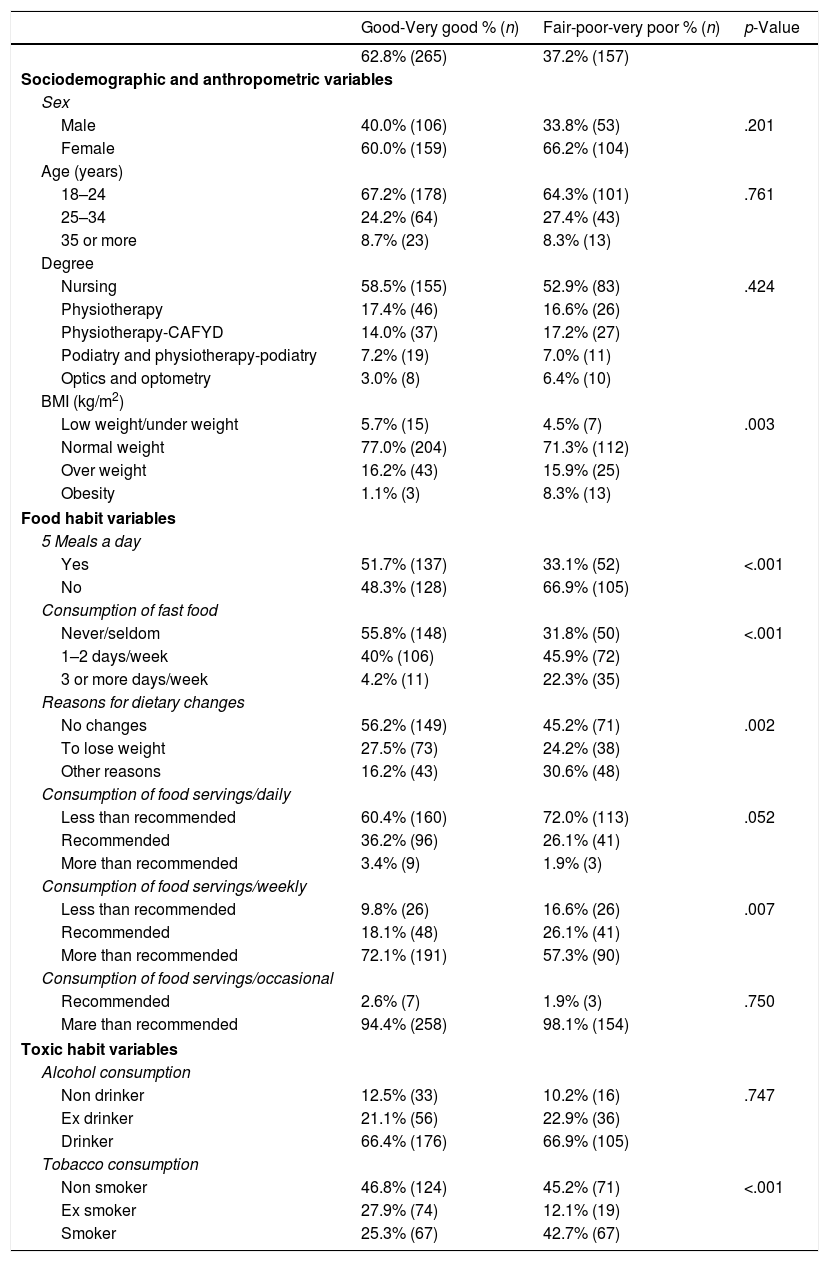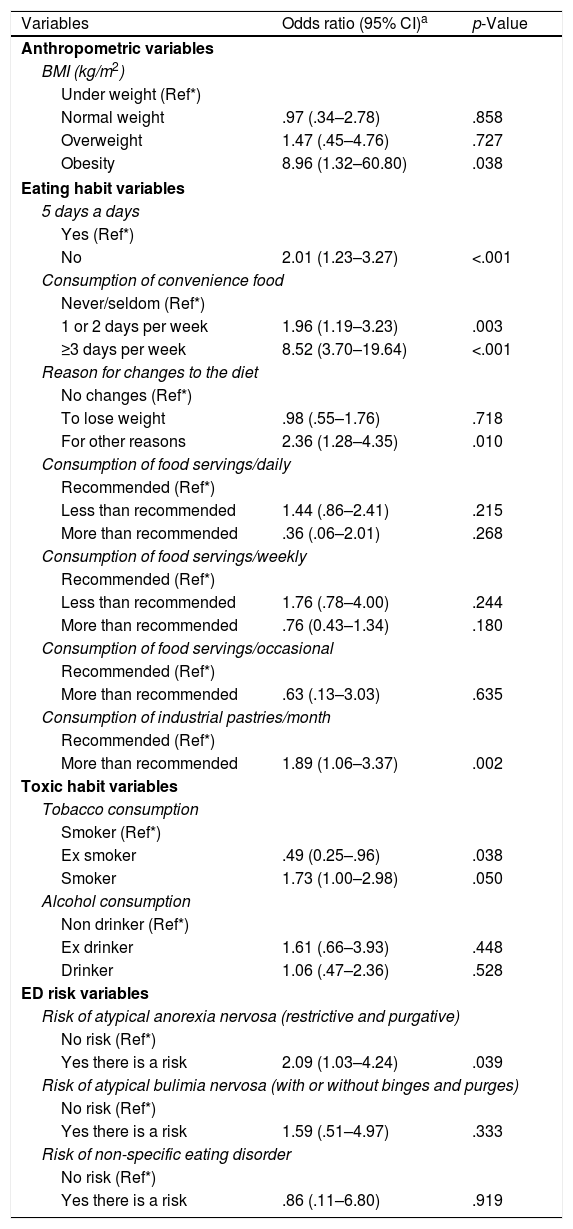The objectives of this paper were to determine weight status, eating, and alcohol drinking and smoking habits of university students, to determine the association between these variables with negative self-perception of their eating habits and to assess the risk of developing eating disorders.
MethodA cross-sectional study was carried out on 422 university students. The parameters analysed were: nutritional status, eating habits, alcohol/tobacco consumption, and risk of eating disorder. Logistic regression was applied to identify factors associated with a negative perception of eating habits.
ResultsOut of the whole population that was analysed, 5% were underweight, 16% overweight and 4% obese. Fifty-five percent of the sample analysed did not consume five meals a day. The recommended foods for daily consumption were consumed below recommendations, while sausages/fatty meats, industrial pastries, lean meats, and fish were over-consumed. Overall, the population perceived their eating habits as good/very good (63%). Alcohol and tobacco consumption predominated at weekends. The girls were more image-conscious (80.6% vs. 66%) and fearful of gaining weight (52.5% vs. 23.9%). Almost 30% had a distorted perception of body image. There was a 12.8% risk of atypical anorexia nervosa and 4.7% of atypical bulimia nervosa.
ConclusionsCollege students led unhealthy lifestyles, mainly due to eating habits that do not conform to the establish recommendations. More than 17% are at risk of developing an atypical eating disorder. This information may be of interest in developing preventive actions.
Los objetivos de este trabajo han sido determinar el estado ponderal y los hábitos de alimentación y de consumo de alcohol y tabaco en estudiantes universitarios, determinar la asociación de estas variables con la autopercepción negativa de sus hábitos alimentarios, así como analizar el riesgo de desarrollar algún tipo de trastorno de la conducta alimentaria (TCA).
MétodoSe llevó a cabo un estudio transversal en 422 estudiantes universitarios. Los parámetros analizados fueron: estado nutricional, hábitos alimentarios, consumo alcohol/tabaco y conductas de TCA. Se aplicó regresión logística para identificar factores asociados a una percepción negativa de los hábitos alimentarios.
ResultadosEl 5% de la población presentaba peso insuficiente, el 16% sobrepeso y el 4% obesidad. El 55% no realizaba las cinco comidas/día. Los alimentos recomendados de ingesta diaria se consumían por debajo de las recomendaciones, mientras que embutidos/carnes grasas, bollería industrial, carnes magras y pescados se consumían en exceso. Percibieron sus hábitos alimentarios como buenos/muy buenos el 63%. El consumo de alcohol/tabaco predominaba los fines de semana. Las chicas mostraron mayor preocupación por su imagen (80,6% vs. 33%) y miedo a engordar (52,5% vs. 23,9%). Casi el 30% presentó una percepción distorsionada de su imagen corporal. Encontramos un riesgo del 12,8% de anorexia nerviosa atípica y del 4,7% de bulimia nerviosa atípica.
ConclusionesLos estudiantes universitarios presentan un estilo de vida poco saludable, principalmente debido a hábitos alimentarios alejados de las recomendaciones. Más del 17% presentan riesgo de desarrollar TCA atípico. Esta información puede resultar de interés para desarrollar acciones preventivas.












